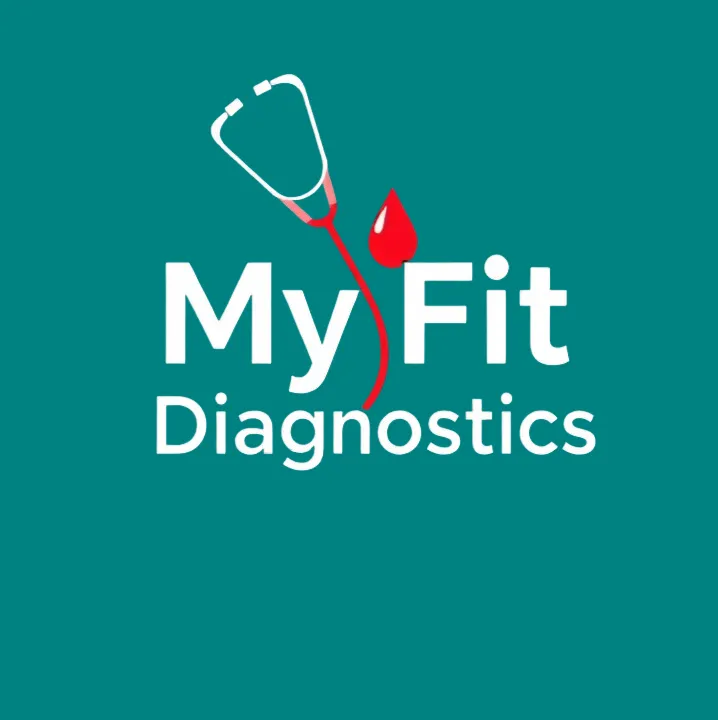
The Benefits of Mobile Phlebotomy
For Individuals:
Convenience of blood draws in the comfort of your home, office, or preferred location
No waiting rooms or exposure to other potentially sick patients
Flexible scheduling
Reduced anxiety for nervous patients in familiar environments
Ideal for elderly, disabled, or mobility-challenged patients
Time-saving for busy professionals and parents
Personalized, one-on-one attention from your phlebotomist
Privacy and confidentiality
Meet your personal phlebotomist
Caring for you in the comfort of home.

Monica Parker, PBT
Graduated from Heritage College in Denver Colorado in 2008. Monica has over 16 years of blood drawing experience and has worked in office settings, emergency rooms, nursing facilities, special needs units and currently in the comfort of your own home. From pediatric to geriatric with intense training with special needs.



Food Inflammation Specialist
KBMO Diagnostics' revolutionary Food Inflammation Test (FIT) offers a precise, science-backed approach to identifying your unique food sensitivities that conventional testing might miss. By detecting both IgG antibodies and complement antigens together, our test provides a comprehensive analysis of how specific foods may be triggering inflammation in your body—potentially causing symptoms ranging from digestive discomfort and skin conditions to fatigue, joint pain, and cognitive issues that have frustrated you for years.
Our clients consistently report life-changing results after following their personalized FIT test protocols, with improvements in chronic conditions they previously couldn't resolve. The convenient at-home testing process delivers clear, actionable results including an easy-to-read color-coded chart and a weekly rotation diet plan tailored to your specific needs. Whether you're seeking relief from persistent symptoms, struggling with unexplained inflammation, or simply wanting to optimize your health and energy levels, the FIT test provides the missing piece to your personal health puzzle.

Autism and Special Needs
In-home blood draws can significantly improve the health care experience for individuals with autism and special needs by addressing their unique challenges, thereby enhancing overall well-being.
Here are several benefits and key advantages:
Reduced Anxiety: Many individuals with autism or special needs may experience heightened anxiety in medical settings. In-home blood draws can create a more familiar and comfortable environment, helping to reduce stress during the procedure.
Familiar Environment: Being in a familiar space can make the experience less overwhelming. It can help them feel safer and more in control, which can be crucial in managing sensory sensitivities.
Customized Approach: Healthcare professionals who conduct in-home blood draws can tailor their approach to the individual’s needs, taking into account specific sensitivities or preferences, such as the presence of a favorite toy or the way they prefer to be spoken to.
Parental and Caregiver Support: In-home procedures allow family members or caregivers to be present, providing emotional support and comfort during the blood draw, which can help ease the process.
Reduced Exposure to Illness: Visiting a clinic or hospital can expose individuals to germs or illnesses from other patients. In-home blood draws minimize this risk by eliminating the need to visit healthcare facilities.
Convenience: Scheduling in-home blood draws can be more convenient for families, especially for those with limited transportation options or those who need flexibility in timing.
Time Savings: Families can save time by avoiding the need to travel to a clinic and wait for an appointment. This can be particularly beneficial for those with busy schedules or multiple appointments.
Improved Compliance: Making the process easier and less stressful can lead to improved compliance with necessary blood testing and monitoring, which is crucial for ongoing health management.
Tailored Communication: Professionals can communicate effectively and at the individual's level in a more personalized setting, which can foster better understanding and cooperation.
Holistic Care: In-home healthcare can encompass a broader range of services that cater specifically to the individual's needs, providing a more comprehensive approach to health and well-being.
Positive Reinforcement Opportunities: The ability to create a post-procedure reward system in a familiar setting can encourage positive experiences and help mitigate anxiety for future medical procedures.




Celebrity Confidentiality
VIP Privacy Assurance:
For our celebrity and executive clients, we provide uncompromising discretion through every step of our concierge services. Our team arrives in unmarked vehicles, maintains strict confidentiality under comprehensive NDAs, and uses secure coding systems rather than your name throughout documentation and lab processing. We accommodate flexible locations, custom arrival protocols coordinated with your security team, and after-hours appointments to ensure your privacy is never compromised. Your samples and results remain protected under a unique identifier system with secure delivery methods, guaranteeing that your health journey remains completely confidential.
Frequently Asked Questions
Answers To Commonly Questions
How do I get the test results from my blood work?
1. From Your Doctor or ClinicContact the clinic or doctor's office that ordered the test. Ask if your results are ready and how they can be delivered (e.g. phone call, in person, or email). Many clinics use online patient portals where you can log in and view your results.
2. From the Hospital patient access portal. You can usually access the results through the hospital's patient portal. Check their website or call the medical records department for access.
3. Through a Laboratory (e.g., LabCorp, Quest Diagnostics) Create or log in to your account to access your lab results online. Results are typically available within 1–3 business days, depending on the test.
What is a Food Inflammation Testing?
Food inflammation testing refers to tests to detect whether certain foods are causing inflammatory responses in your body, which may contribute to symptoms like bloating, fatigue, joint pain, skin issues, or other chronic conditions.
Do I have to have a doctor's order to have my blood drawn?
1. Insurance Coverage: If you want insurance to pay for the blood test to be ran at the lab of your choosing, it almost always requires a doctor’s order. Tests for conditions like thyroid disease, diabetes, anemia, infections, or autoimmune disorders often require a doctor’s order.
2. Wellness Tests (Not Diagnostic): Many at-home tests for food sensitivity, hormone balance, vitamins, or general wellness don’t require a prior prescription. These are often used for personal health tracking, not medical diagnosis. And are on a self pay between the patient and the company providing the test.
Who can benefit from in home blood draw service?
1. People with Limited Mobility: Elderly individuals who may have trouble traveling to clinics. Disabled or chronically ill patients who find it difficult to leave home.Post-surgery patients needing follow-up tests while recovering at home.
2. Busy Professionals or Parents: People with tight schedules who prefer the convenience of getting blood drawn at home rather than taking time off work or childcare.
3. Individuals with Anxiety or Phobias or Special Needs: Those who experience medical anxiety or needle phobia or special needs may find a home environment less stressful than a clinic.
4. Immunocompromised Patients: People undergoing chemotherapy, with autoimmune disorders, or who are organ transplant recipients may prefer avoiding exposure to crowded medical facilities.
5. Patients in Long-Term Care or Hospice: Those in nursing homes, rehabilitation centers, or hospice care can receive necessary monitoring without disruption.
7. People Using At-Home Lab Testing Services: Many modern telehealth and direct-to-consumer health testing companies (e.g., Everlywell, LetsGetChecked, or concierge medical services)
Which lab does my blood get taken to?
Your blood gets taken to the lab of your choosing. Or if it's a kit that gets mailed out, your personal phlebotomist will ensure it gets sent out properly.
Is the blood draw covered by my insurance?
No, the in home personal blood draw is not covered by insurance.
